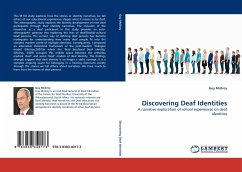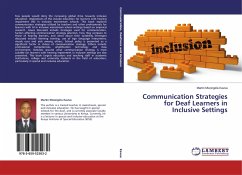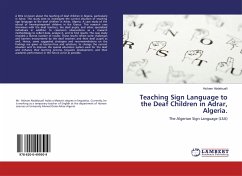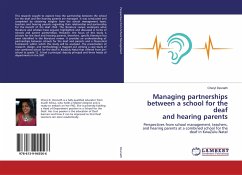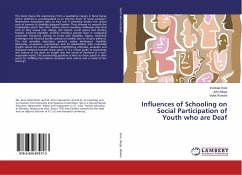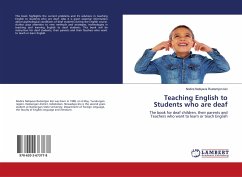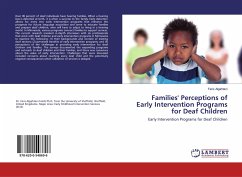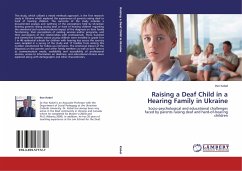This M Ed study explores how the stories or identity narratives we tell others of our educational experiences shapes what it means to be deaf. This ethnographic study explores the identity development of nine deaf participants through their identity narratives. The inclusion of the researcher as a deaf participant in this study provides an auto- ethnographic gateway into exploring the lives of deaf/Deaf/bi-cultural DeaF persons. The current way of defining deaf persons has become inadequate for understanding how many deaf people fit into the complex modern world of multiple identities. Consequently, I proposed an alternative theoretical framework of the post-modern dialogue model (Mcilroy,2007)in which the fluid bicultural DeaF identity (Mcilroy, 2008) occupies this middle space between the orthodox medical deaf and social Deaf models of deaf identity. The findings strongly suggest that deaf identity is no longer a static concept. It is a complex ongoing quest for belonging in a hearing dominant society through the stories we tell others about ourselves. We have much to learn from the stories of deaf persons.
Bitte wählen Sie Ihr Anliegen aus.
Rechnungen
Retourenschein anfordern
Bestellstatus
Storno

